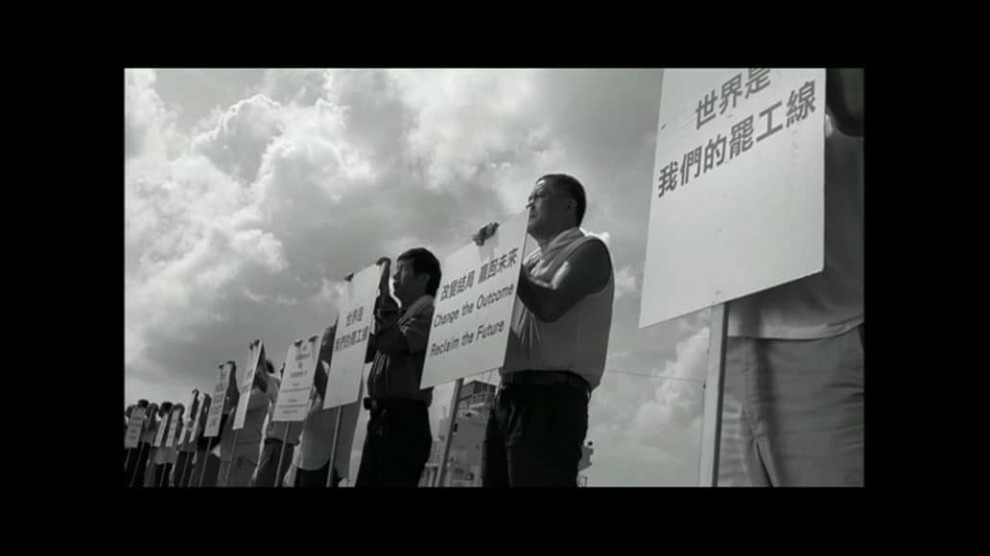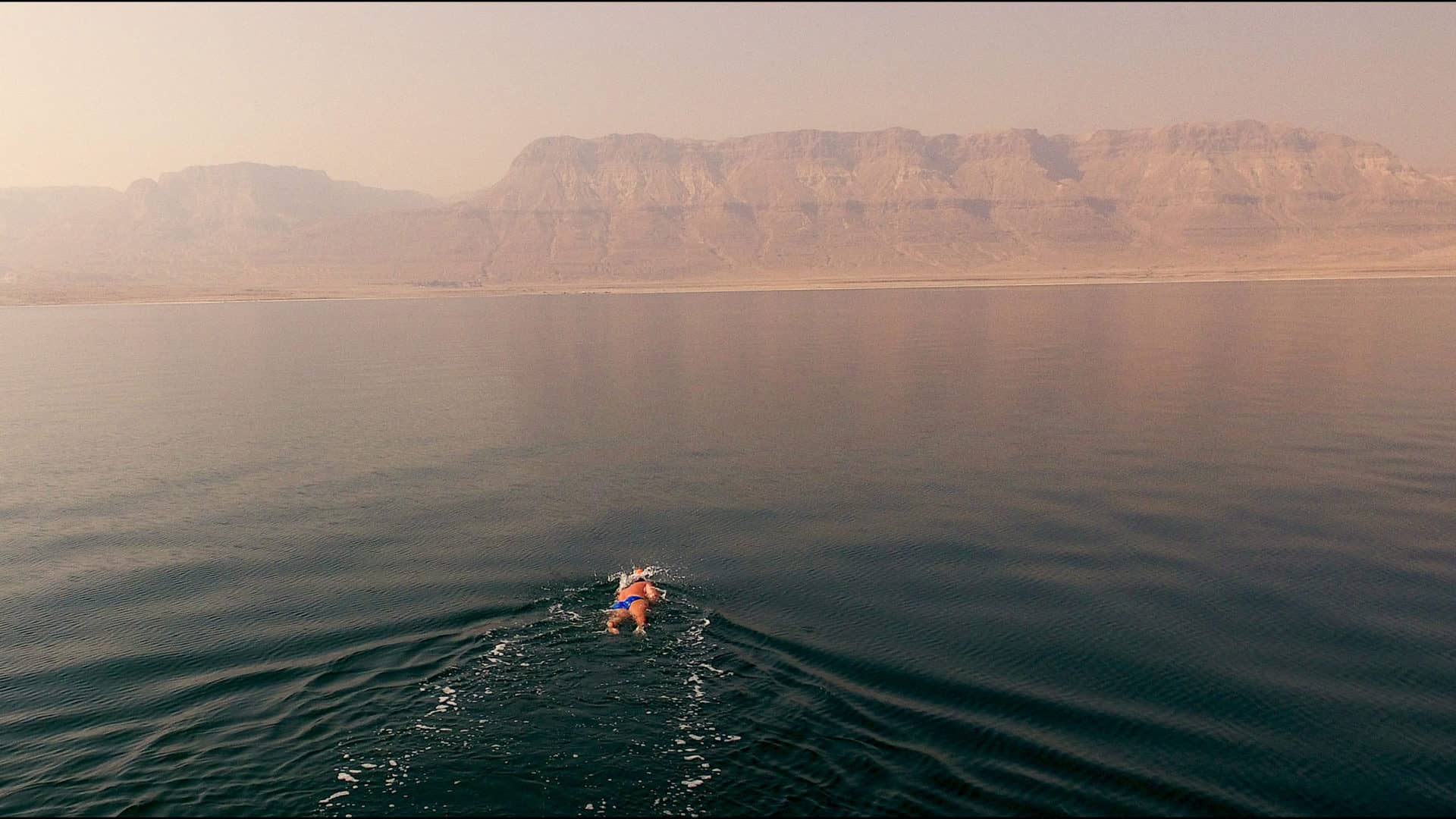Solidarity in the face of privatisation and its hammer-blows against the international workforce flourishes under many banners, guises, and movements; a universal struggle to undermine capitalism's exploitative abuses has been fought, both in broad daylight and beneath the shadows, for time immemorable. Back in the 1990's, one such struggle reared its gnashers on a global level when ports across the planet refused the docking of shipping vessel Neptune Jade and the unloading of its cargo. Against this shining example of workers' unity stands Chen Chieh-jen's “The Route”, a border-negating wall of bodies and signs espousing the transnational ideal that camaraderie knows no physical limitations, where the will of the people will ultimately triumph. Or something like that at least.
The Route is screening at Taiwan Film Festival UK

The incidents surrounding the Neptune Jade's 1997 voyage has been well documented and is well known among unionist circles. After some 500 dockworkers in Liverpool were sacked, picket lines were set up in the ship's various destinations, starting with Oakland, denying its access and successful unloading at every stop it made until it reached the port of Kaohsiung, where it was all eventually sold. As a result, the Pacific Maritime Association attempted to sue the labour activists who had taken part but were beaten by an undeniable show of global strength.

These events serve as a prologue during the film's opening moments, a necessary precursor to the illegal acts which unfurl thereafter; at the very same dock in Kaohsiung, a small group of workers climb the fences and stand side-by-side clutching their signs of protest in their hands with nothing but strength and never-ending determination across their faces. Documenting this single line may take up the bulk of “The Route”'s 17-minute runtime but, much like any of Chen's other films, the devil lies in the details.
On the one hand this particular piece is yet another political statement and, frankly, not much else: filmed just over a decade after the influential action Chen goes to great lengths to prove the spirit of those dockworkers – and all workers – lives on; that the ruthless, virulent spread of privatisation will never go unchallenged. On the other hand, it further accentuates the intricacies of Chen's photography – and is more interesting to think about in this light. Each frame is immensely detailed, heightening the visceral bonds and strength of every individual yet leaving each worker feeling completely human, where beads of sweat are free to trickle down a statuesque pillar of flesh and ideals. Despite all this, the film's silence is to its own detriment and though it does nothing to undermine the importance of the film's message, it leaves for a wistful longing for a little something.

An astute political artist, Chen has made a name for himself with an astounding oeuvre of visual poetry, yet “The Route” almost feels like a weak link. Unlike “The Factory” for instance, the coagulation of the differing aspects of his work doesn't quite gel here, and without the significance of its prologue (and the events behind it) comes across as precisely just another statement against privatisation to join the ranks of countless others. Even when taking the illegality into consideration it doesn't make for a particularly overwhelming experience. It just is. Luckily there is plenty here to feat our eyes on during its short lifespan.















